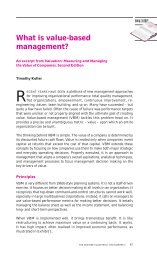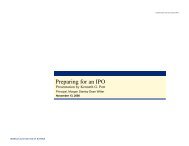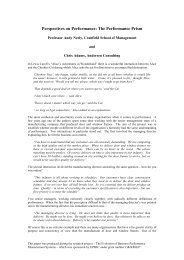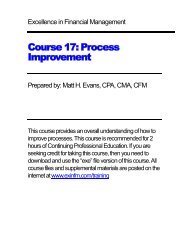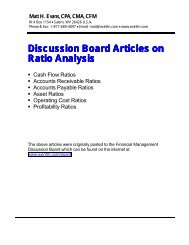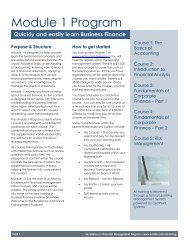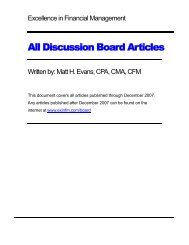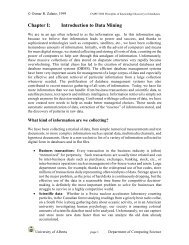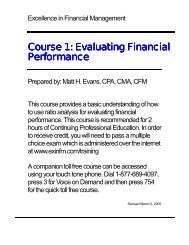Download PDF - Appreciative Inquiry - Cleveland Consulting Group
Download PDF - Appreciative Inquiry - Cleveland Consulting Group
Download PDF - Appreciative Inquiry - Cleveland Consulting Group
You also want an ePaper? Increase the reach of your titles
YUMPU automatically turns print PDFs into web optimized ePapers that Google loves.
pairs. Each person takes a turn at interviewing and being interviewed. The<br />
questions just answered are used with the interviewer probing deeper into the<br />
answers, getting excited, being surprised, curiously inquiring. Listen intently.<br />
Pause before asking questions.<br />
Each pair joins to form a group of 8-12 people. The interviewers report to the<br />
group what was learned from the interview. A list is created on newsprint/poster<br />
boards.<br />
Three to five themes are developed from the lists. Using themes listed on the<br />
newsprint, develop topics that can be affirmatively explored. Consider the<br />
following ways to create an affirmative topic—<br />
• reversing a problem into a positive statement, customer complaints to<br />
customer compliments.<br />
• using improbable word pairings to deepen the meaning such as congruent<br />
commitment, honest authenticity, radically clear communications, optimal<br />
integrity, meaning-making relationship, organizational optimism, and/or<br />
lightning fast consensus.<br />
Once the topics are selected (three to five), we move into the discovery phase.<br />
Discovery—What gives life (the best of What is)—Appreciating<br />
The discovery phase involves a data collection and narrative exploration. It begins<br />
the process of revealing the positive, the successful, and the prideful experiences<br />
of the individual and collective. Through carefully developed interview questions<br />
based in the affirmative topic selection, the focus is to explore and enliven the<br />
stories that are shared through interviewing the defined group within the<br />
organization. Generally, the more reflective of the entire organization, the more<br />
effective the outcome.<br />
The steps in the discovery phase are as follows:<br />
• Identify stakeholders.<br />
• Decide who will be interviewed.<br />
• Develop interview protocol/questionnaire and distribute to team members.<br />
• Decide on a method/format for organizing the data<br />
» How will findings be recorded<br />
» How will the team’s data be compiled<br />
» Who will do it<br />
©Herb Stevenson 8 <strong>Appreciative</strong> <strong>Inquiry</strong><br />
http://<strong>Cleveland</strong><strong>Consulting</strong><strong>Group</strong>.com



